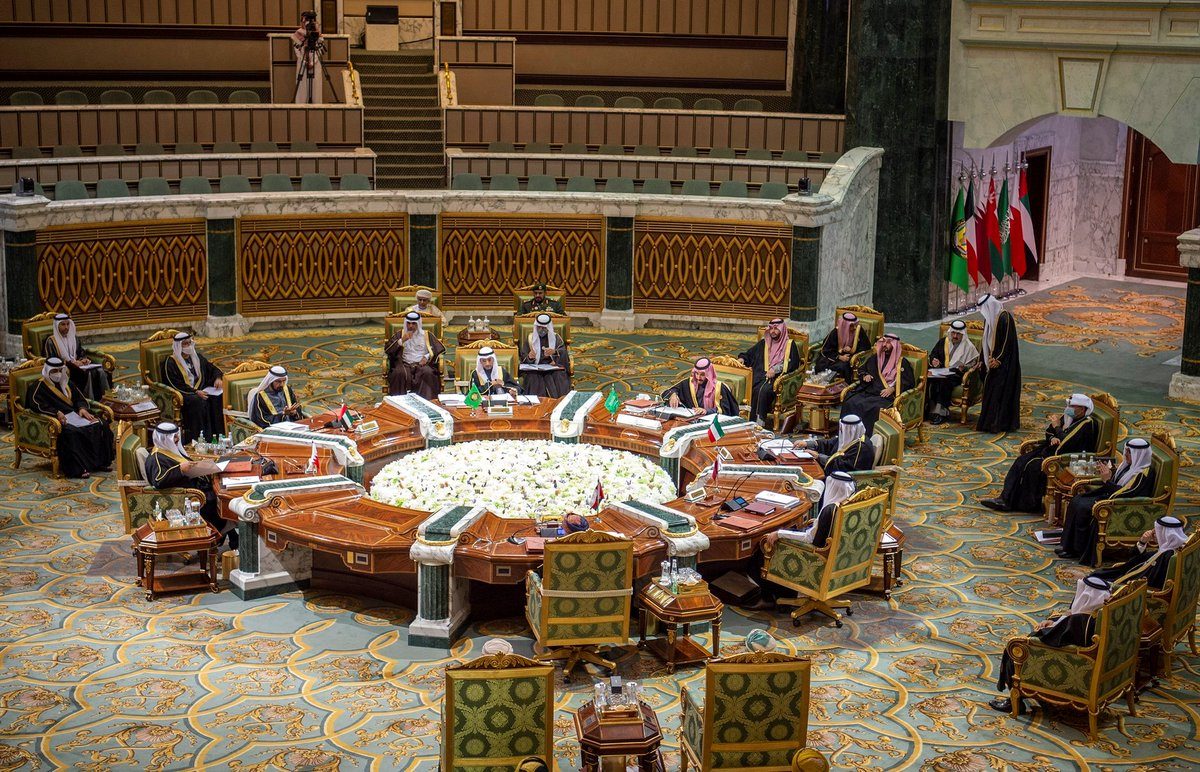People in Germany also took aim the statements made against Qatar.
The Gulf Cooperation Council (GCC) condemned remarks made by Germany’s interior minister against Qatar’s hosting of the FIFA World Cup.
In a statement on Saturday, the GCC’s Secretary General Nayef Al Hajraf renewed the bloc’s support for Qatar “in addressing any interference in its internal affairs”.
Al Hajraf said the GCC stands against “the publishing of allegations that do not serve the establishment of normal relations between the two countries as a violation of diplomatic norms, traditions and international laws.”
The GCC chief described Qatar’s hosting of the event as “a source of deserved pride”, praising its leading role “in building civilised communication and promoting understanding between nations in a framework of mutual respect.”
Last week, Germany’s Minister of Interior Nancy Faeser criticised Qatar’s human rights record during an interview with local German broadcaster ARD network.
Faeser, who is scheduled to visit Doha this week, described Qatar’s hosting of the tournament as “very tricky” for the German government.
“There are criteria that must be adhered to and it would be better that tournaments are not awarded to such states,” she said.
Qatar responded to the statements by summoning Germany’s envoy to Doha Dr. Claudius Fischbach on Friday.
In a statement, the Gulf state’s foreign ministry said it handed Claudius an objection memo to express its “disappointment and complete rejection and condemnation” of Faeser’s remarks.
The Qatari foreign ministry further stated that the remarks go “against diplomatic norms and conventions, especially in light of the distinguished ties between the State of Qatar and Germany in all fields.”
The memo also expressed “Qatar’s complete rejection of those remarks made towards a country whose hosting of the World Cup was justice done to a region suffering from an unjust stereotype for decades.”
Echoing similar sentiments, Qatar’s Foreign Ministry Spokesperson Dr. Majed Al Ansari described the comments “as unacceptable and provocative for the Qatari people”.
Dr. Al Ansari stressed that “it was unacceptable for politicians to try and score political points locally at the expense of their relations with other countries.”
“Qatar is currently preparing to be a hub for civilised communication and the promotion of understanding among world nations in a frame of mutual respect during the World Cup,” the foreign ministry statement added, citing Dr Al Ansari.
Doha has received ongoing criticism for its track record in its treatment of migrant workers, with scrutiny exacerbating in recent weeks as the World Cup looms around the corner. Some of the recent criticism has also focused on its stance on LGBTQ.
Responding to the incident between Berlin and Doha, former German Federal Minister for Foreign Affairs Sigmar Gabriel slammed the “German arrogance towards Qatar”.
“How forgetful are we? Homosexuality was a punishable offense in Germany until 1994. My mother still needed her husband’s permission to work. We treated ‘guest workers’ crappy and housed them miserably,” tweeted Gabriel.
The former German vice-Chancellor also said it took Germany “decades to become a liberal country.”
“Progress does not come overnight, but step by step. That was true for and is true for Qatar now. The UN, the ILO [International Labour Organization] praise the country for its reforms. Only we Germans insult it every day,” he added.
The latest criticism by the German interior minister came just days after Qatar’s Amir Sheikh Tamim bin Hamad Al Thani slammed what he described as “ferocious” attacks against Qatar since it won the bid to host the World Cup.
The amir said that “no other host nation” has faced this level of criticism.
“Since we won the honour of hosting the World Cup, Qatar has faced an unprecedented campaign that no other host nation has received. And we had handled it at first in good faith while considering some of the criticism positive and beneficial,” Sheikh Tamim told the Shura Council on Tuesday.
The Qatar ruler admitted that while the criticism has helped the country “develop aspects that needed development,” the campaign has expanded to include slander.
“It soon became clear to us that the campaign has continued and expanded, and includes slander and double standards until it has reached such a ferocity that many, unfortunately, wonder about the real reasons and motives behind it,” said Sheikh Tamim.







